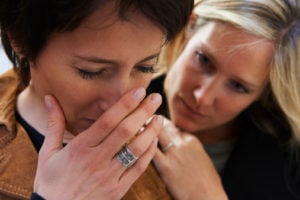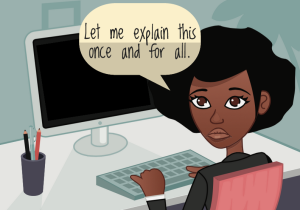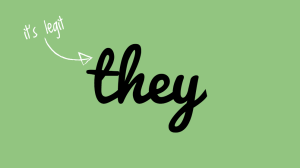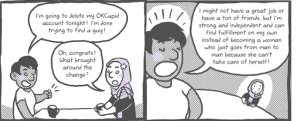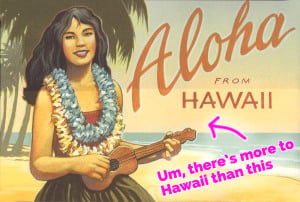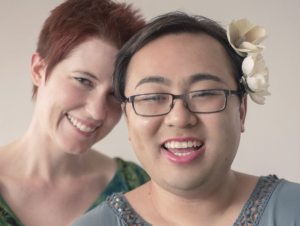Editor’s Note: This article is not meant to suggest that readers forego traditional medicine when it’s necessary nor does it propose ancestral medicine as the solution to our healthcare crisis. It’s meant to explore other types of medicine that can be beneficial to supplement with Western medicine.
When’s the last time you put your hands in the earth?
If it’s been too long, make it a point to play in the dirt soon. Let it seep through your fingers — appreciate its resilience. No matter how hard humans try to destroy it, the earth persists.
Our ancestors survived off this land for hundreds of thousands of years, but many of us have forgotten our people’s agricultural pasts. Before pharmaceutical companies existed, our ancestors grew their own medicine. Their healthcare was tied directly to the land.
Today, healthcare is determined by how much money, access, and privilege we have. We’ve strayed far away from the healing practices of our ancestors and have suffered greatly as a result.
Ancestral medicine is the opposite of the Western medicine practiced in our healthcare system today — a system driven by profits and quick, temporary fixes.
Modern healthcare forces us to depend on medical professionals who are trained to center their businesses instead of care and compassion. They rarely take the time to build meaningful relationships with patients, even when they have good intentions.
In contrast, ancestral medicine teaches us how to heal ourselves. It tells us to listen to our bodies and to trust them. Ancestral medicine practitioners allow patients to do their own work by facilitating their healing process, while Western medicine gives doctors all of the power.
Right now is an ideal time to explore ancestral medicine as our president attempts to dismantle affordable healthcare laws. And, amidst rampant oppression and white supremacy — whose unwavering presences have been made particularly apparent in recent tragedies —it’s clear we must find alternative methods of caring for our bodies and our minds.
To ensure quality healthcare for all, we must try things we’ve never tried before, including the ways of those who came before us. It’s essential that ancestral medicine becomes accessible as more and more people seek alternatives to our crumbling healthcare system.*
Journeying towards reclaiming ancestral medicine is deeply personal, emotional and spiritual. I offer the following list as a resource for people who, like myself, are just starting this never-ending process.
So, how can we move towards a healthcare system that incorporates the holistic practices of our ancestors?
Here are four tips to help you begin practicing the medicine of our ancestors:
Spend intentional time with the land and water
Both land and water are sacred and can make us feel closer to our ancestors. Gardening is one way to become familiar with plants that our ancestors used to make medicine. By working with plants, we symbolically take back the land stolen from our people over generations.
Getting in touch with the land improves our personal health, as well as the health of our communities. Knowing how the earth works gives us an advantage over the systems of oppression that endanger our well-being.
I want to learn more about the geographies of where my ancestors’ spirits live. Next time I visit the coast of Georgia or rural eastern North Carolina, I will intentionally meditate on their lives and how they relied on the earth for survival.
Look within
In our current healthcare system, we’re told prescription drugs are the answer. Ancestral medicine tells us we already have the answers but have lost them because we’ve abandoned the ways of those who came before us.
Ancestral medicine beginners can start their journeys by reflecting on patterns in their own lives and the lives of their families. If there are certain themes that keep coming up, dig deeper. Track if, when, and how ancestors appear in your dreams.
Don’t be afraid to ask your ancestors for healing directly. rafael/a luna-pizano, who incorporates his Filipinx and Mexíca roots into his energy and body work, suggests honoring our ancestors with small ceremonies, such as putting out food and water for them.
“I think ancestral altars are so important, even if we don’t know our ancestors’ faces or names,” luna-pizano says.
Talk to family members
Thanks to stories from my late grandmother, I know some of my ancestors worked as sharecroppers in South Carolina. I remember my grandmother growing all types of plants, despite living in a small apartment. It hurts that I can’t ask her more about these things in-person.
If you’re able, ask your families if they know of any healing practices in your lineage. Document the wisdom of your elders while they’re still living. Learning new and interesting things about your family can inspire you to keep digging into your past.
Ask your families what types of food your ancestors ate. According to Angela Basbas Angel, an indigenous Filipinx healer based in the Bay area, consuming the foods of our ancestors can awaken our DNA and open us up to memories that our families have lost.
Another benefit to eating what our ancestors ate is that it may heal our bodies, which get sick when our diets become colonized and, often, much unhealthier than our traditional diets.
If you don’t have access to your family, reach out to elders in your community with your questions. Be prepared to get rejected, but the universe will eventually lead you to an elder who’s willing to share their memories.
Connect with your community
Connecting with other humans is healing in itself. You may want to gather with folks in your communities to learn about your common ancestries together. Angel connects to community by teaching classes in which she shares her knowledge of Filipinx ancestral medicine.
People of color can help heal each other by sharing our ancient medicinal practices with love and respect. The need for ancestral medicine in communities of color is too real for us to hoard our knowledge in isolation.
When seeking out ancestral medicine, be mindful of appropriating Indigenous cultures. Ask for permission to engage in healing practices that belong to cultures that aren’t your own.
***
In times that feel like the end of times, it’s important to learn more about ancestral medicine so that we are able to survive whatever comes our way. When technology fails us, we can always look to our ancestors to guide us.
We make our ancestors happy and proud when we learn how to heal like they did. They gave us life, so it’s our honor and duty to keep their legacies alive.
[do_widget id=’text-101′]
Neesha Powell-Twagirumukiza (she & they pronouns) is an Everyday Feminism Reporting Fellow. Neesha identifies as an intersectional feminist, womanist, writer, community organizer, facilitator, dancer, freedom fighter, wife, and cat mama. She’s constantly conspiring in the name of liberated Black futures, queer and trans people of color power, solidarity economics, and transformative justice/community accountability. Neesha’s based in a suburb south of Seattle, where she lives, loves, and creates with chosen family.
Search our 3000+ articles!
Read our articles about:
Our online racial justice training
Used by hundreds of universities, non-profits, and businesses.
Click to learn more







